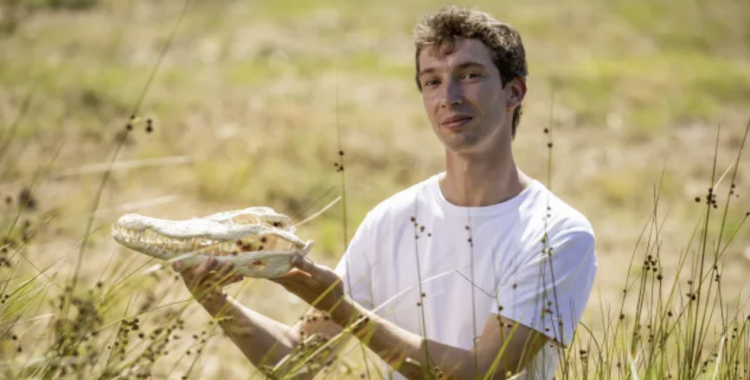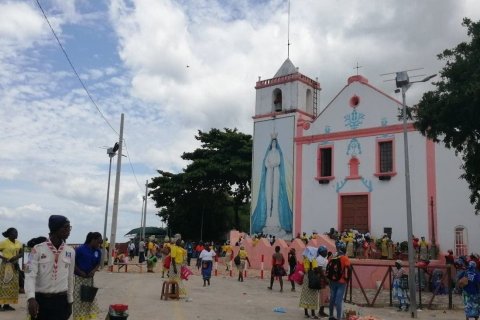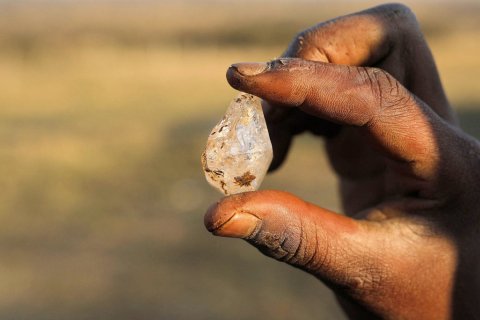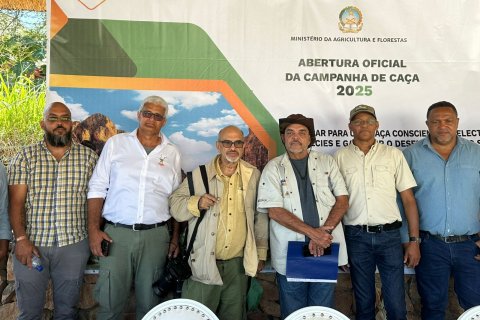The discovery of the fossil in Namibe province, announced this Tuesday, was led by paleontologist Arthur Maréchal, and will help reconstruct life in African oceans before the global cataclysm of 66 million years ago, according to a statement from the Nova FCT.
"It is one of the oldest and southernmost representatives of this group ever identified, with characteristics that demonstrate its presence well before the mass extinction that occurred 66 million years ago," said Arthur Maréchal, quoted in the statement.
The fossil, belonging to the family Dyrosauridae – a group of large marine reptiles related to modern crocodiles – was excavated in 2017 near Bentiaba, a site of recognized importance for African marine paleontology, and prepared at the Lourinhã Museum, according to the FCT.
Analysis of the fossilized bones places the animal in the subfamily Hyposaurinae, revealing an elongated snout adapted to marine life and "challenges the theory that Dyrosauridae only flourished after the extinction of the dinosaurs, suggesting instead that the lack of earlier records could be due to an incomplete fossil record."
The FCT adds that this research, published in the Zoological Journal of the Linnean Society, reinforces Angola as a burgeoning region for future paleontological studies.
"In places like Bentiaba, where rocks still harbor traces of ancient marine reptiles such as mosasaurs, plesiosaurs, and now crocodile relatives, paleontologists are gaining rare glimpses of South Atlantic ecosystems before one of the most dramatic turning points in the history of our changing planet," the press release highlights.
Paleoartist Victor Carvalho created a reconstruction titled "Submerged in Time: Fauna Before Silence," showing the newly discovered crocodile alongside other marine creatures that once thrived in the Atlantic and Angolan seas of the past.
Founded in 1977 in the Caparica area, this university campus is the largest in Portugal, with approximately 8500 students, more than 500 professors and researchers, 243 staff members, and over 1000 projects.







